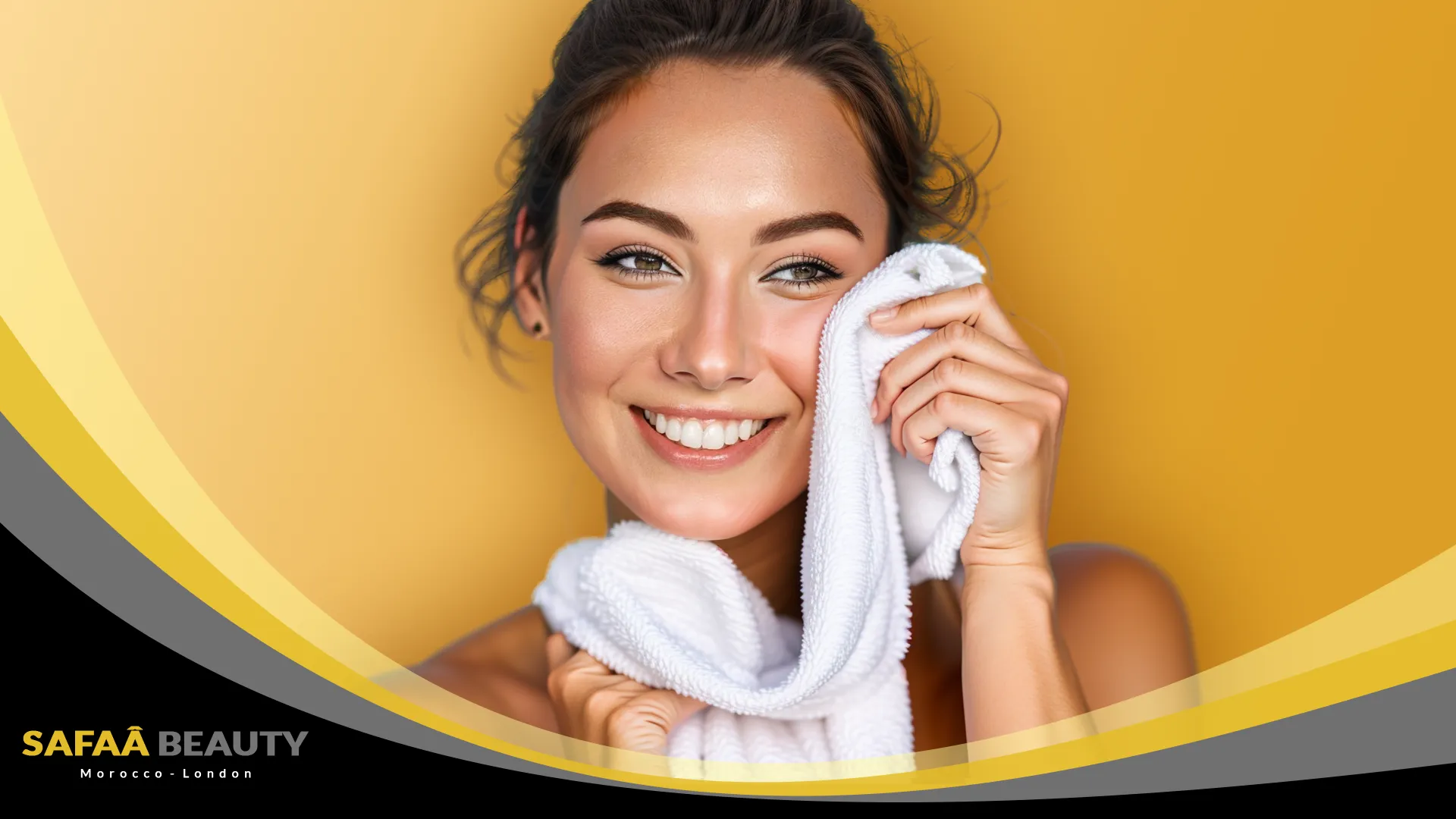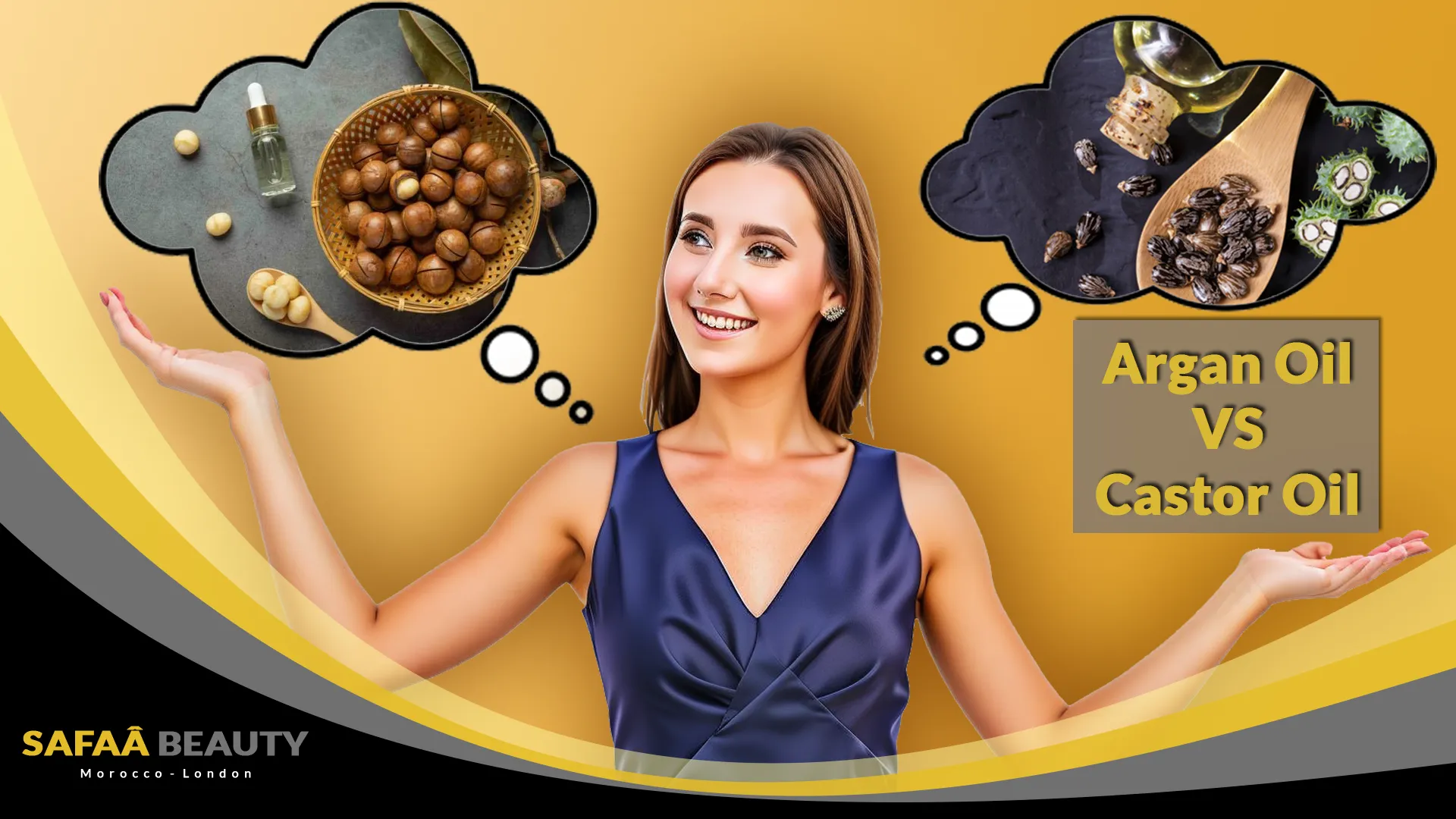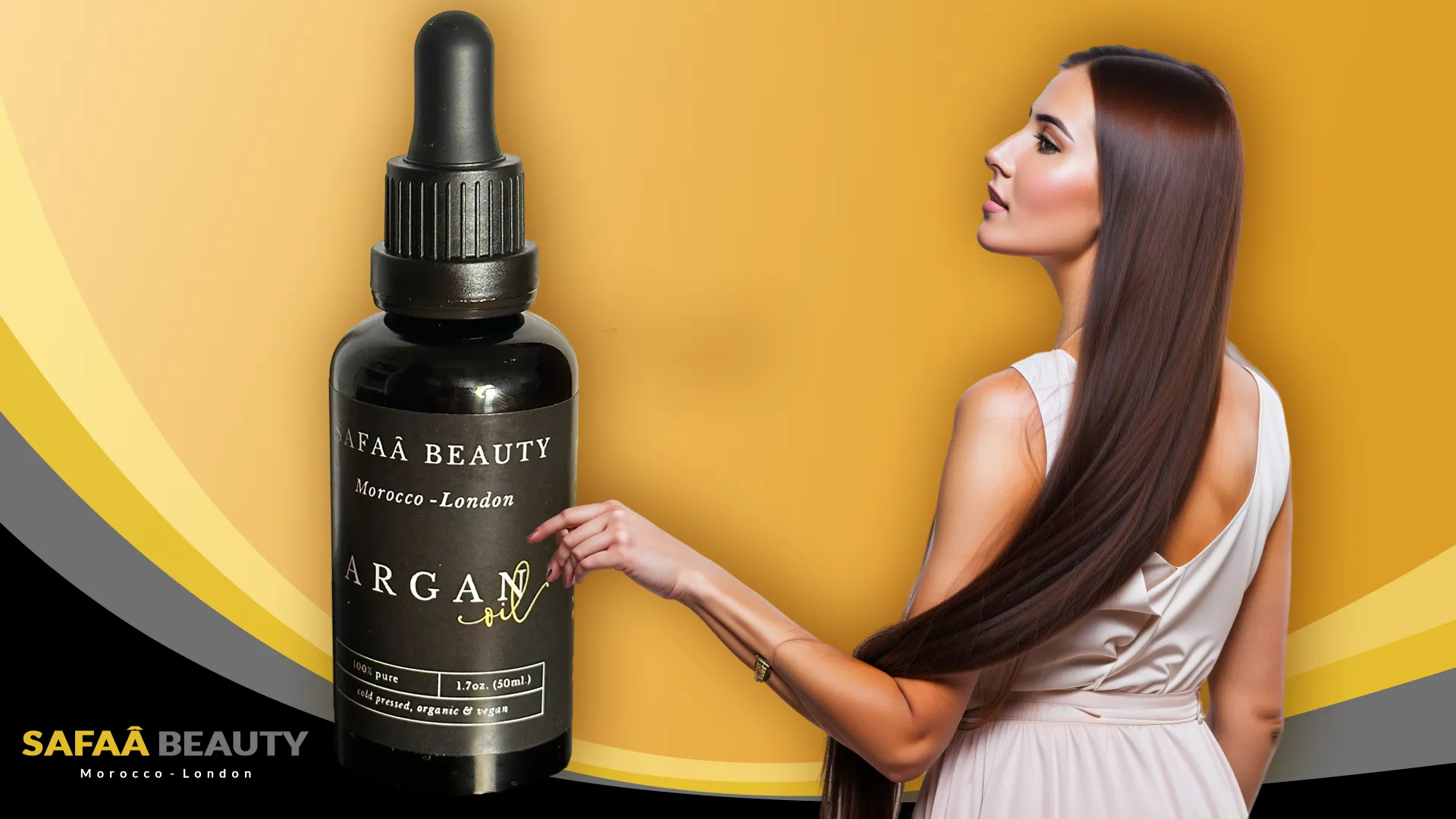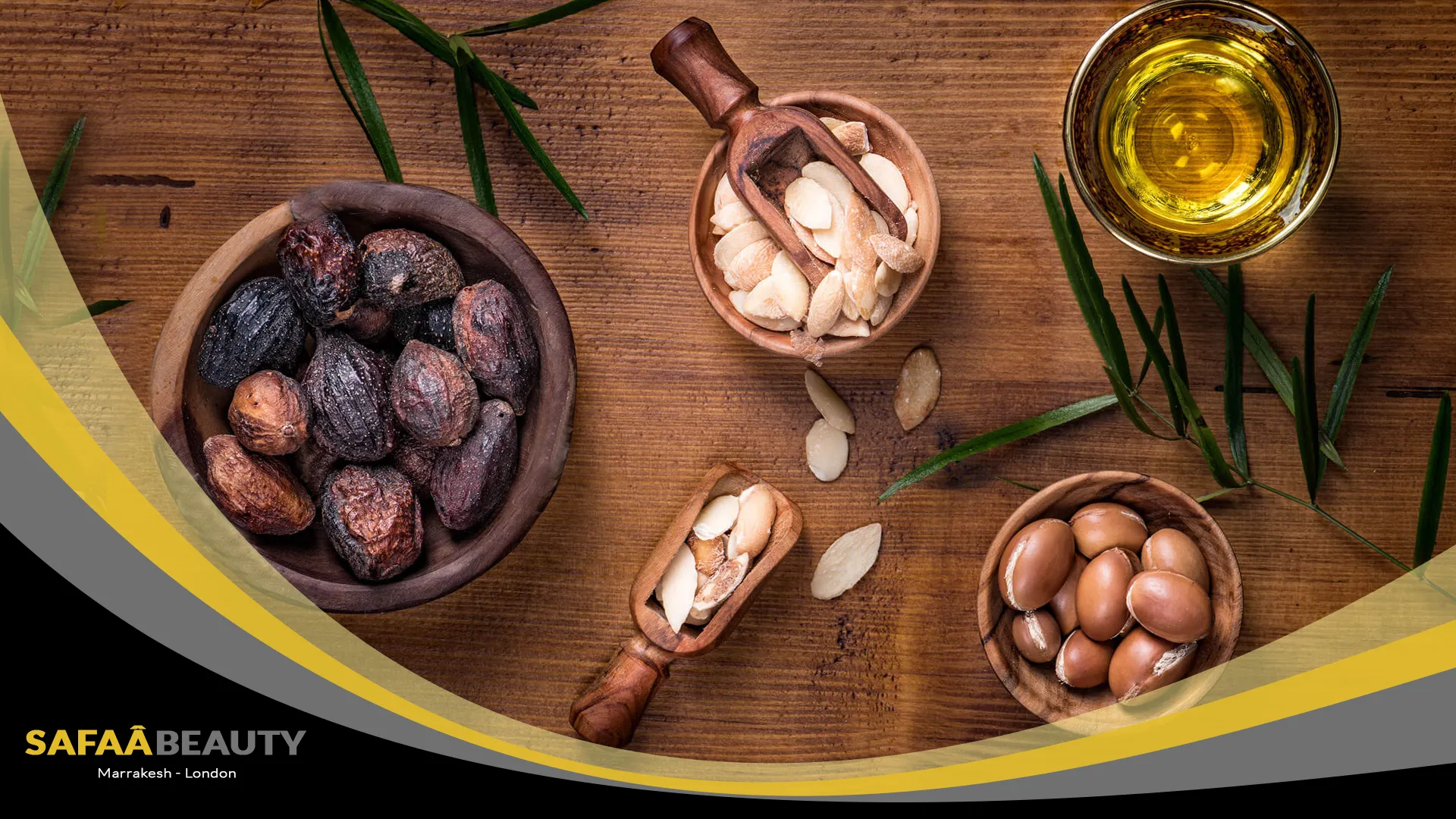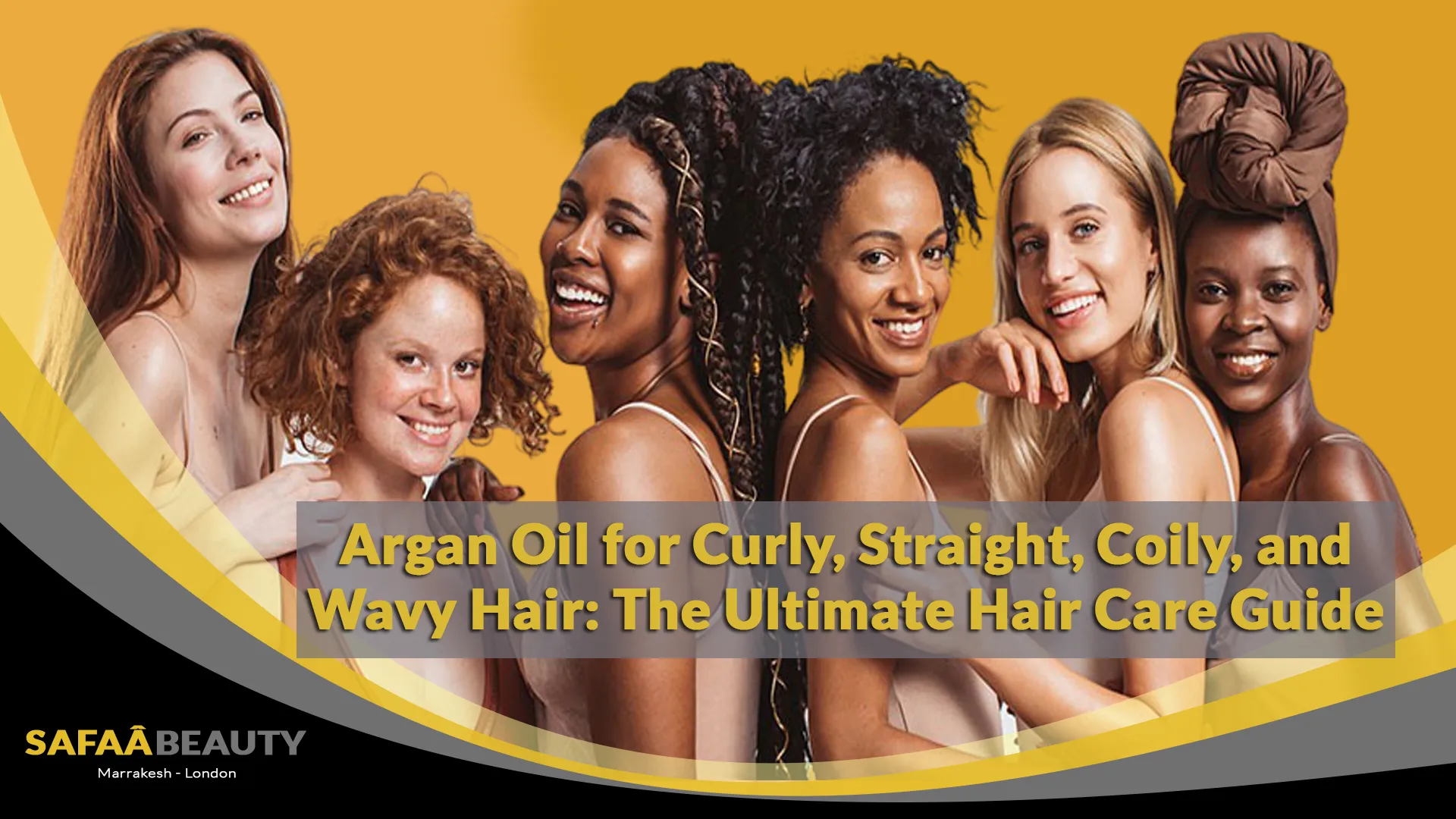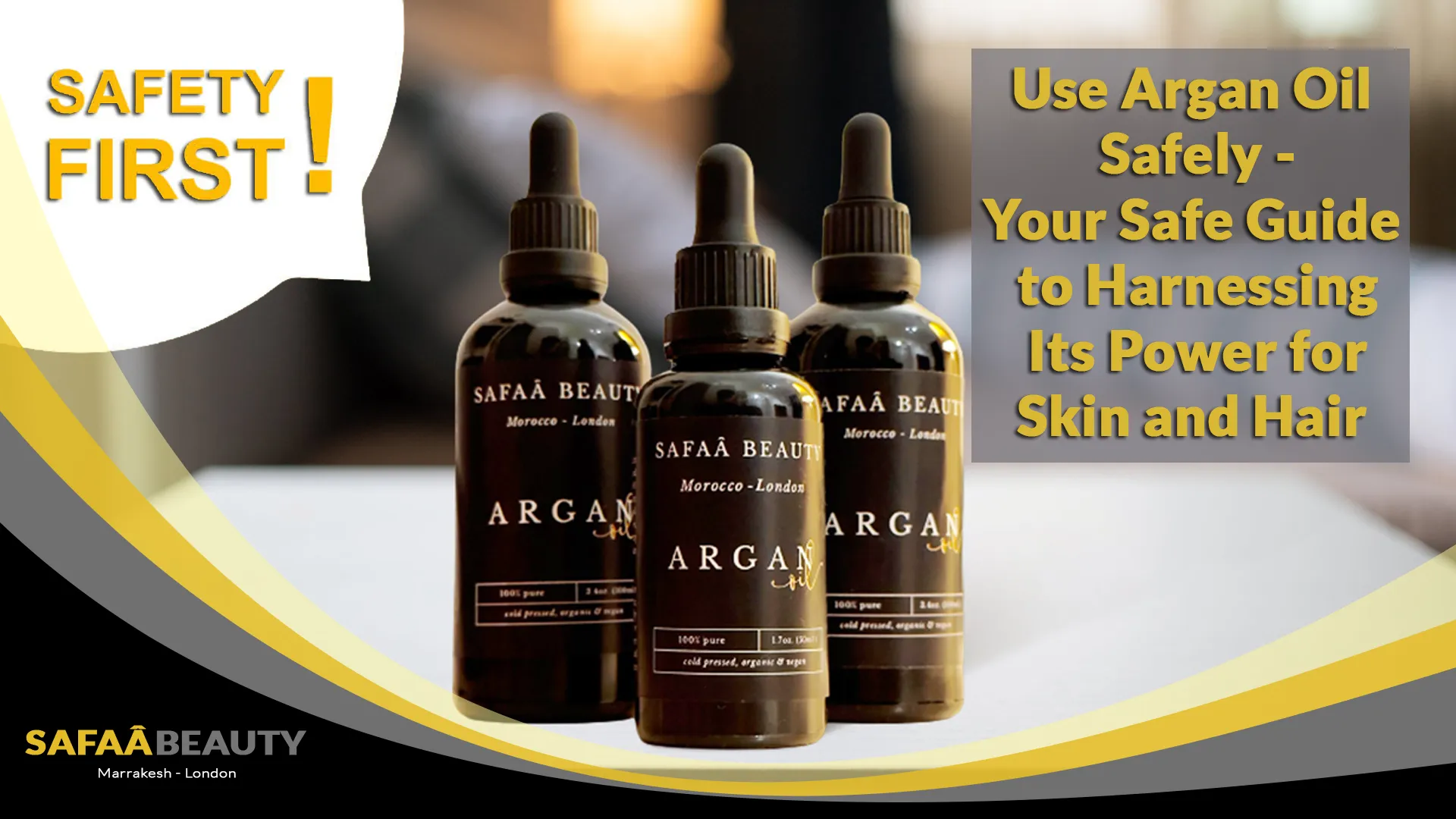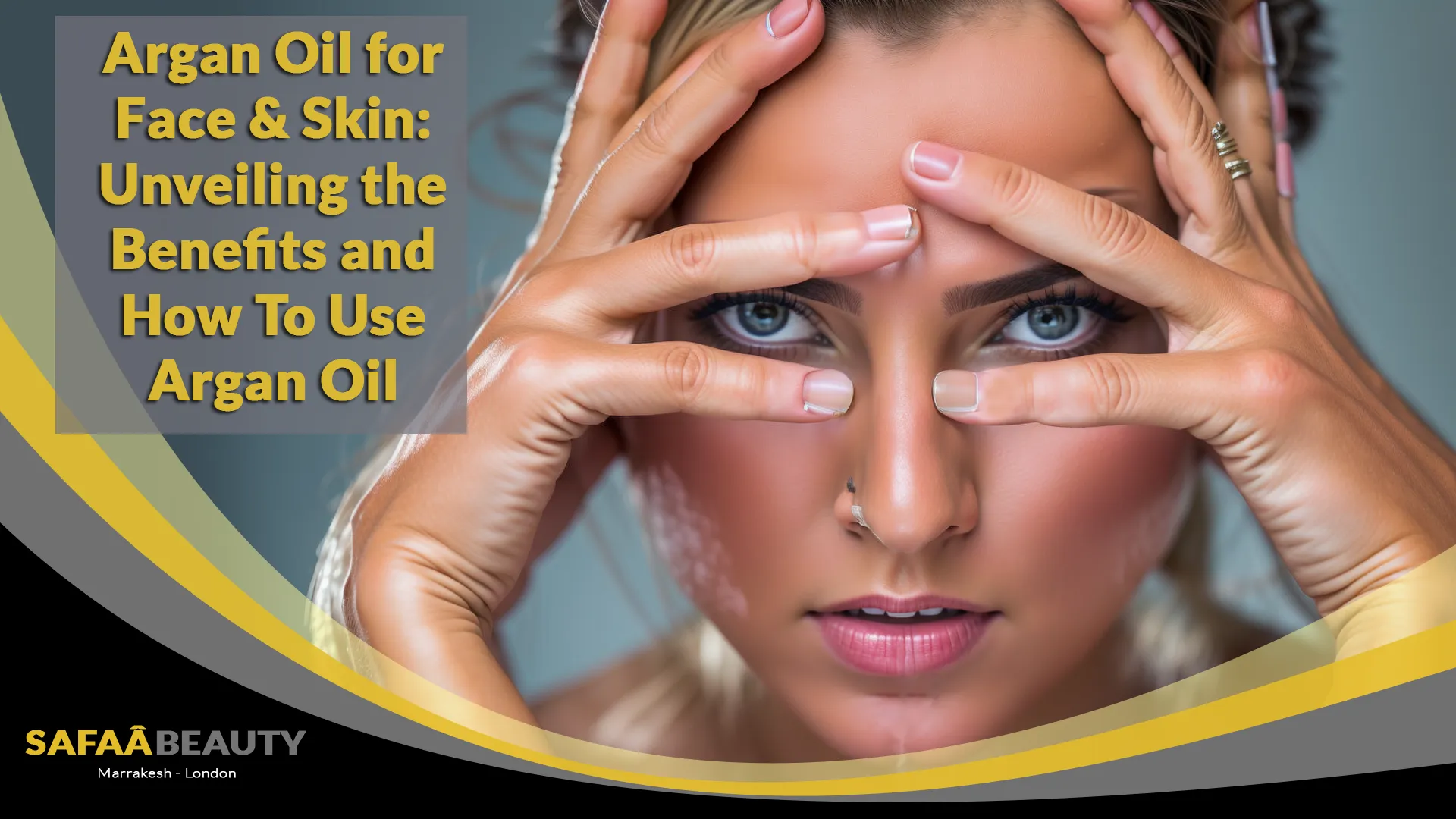Argan Oil for Face & Skin: Unveiling the Benefits and How To Use Argan Oil
Is your skin craving an elixir that's both natural and profoundly beneficial? If yes, then this blog about using Argan oil can be a life-changer for you. We'll delve into what makes Argan oil good for the face and skin, and how to use this Moroccan oil on your face best. Dive in to discover the myriad of ways to use Argan oil that you'll wish you'd known before!
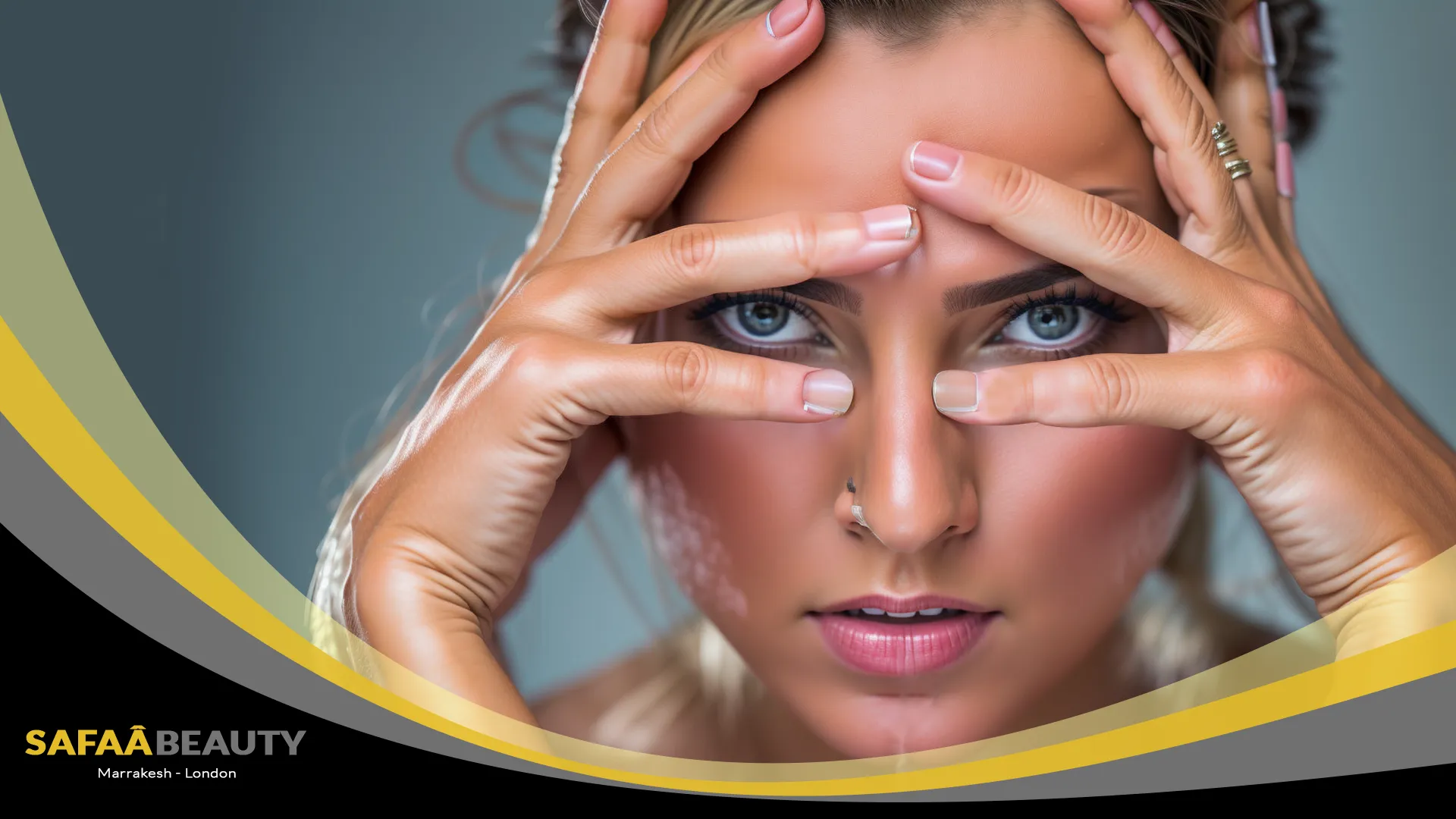
Content:
1. What is Argan Oil?
2. Why is Argan Oil Good for the Face and Skin?
3. Can I apply Argan Oil Directly on my Face?
4. What are the Benefits of Argan Oil for Oily Skin?
5. How does Argan Oil Benefit Dry Skin?
6. Is Argan Oil Suitable for Sensitive Skin?
7. How to Use Argan Oil on the Face?
8. How to Use Argan Oil for Hair?
9. What Products Include Argan Oil?
10. What to Keep in Mind When Buying Argan Oil?
What is Argan Oil?
Argan oil is derived from the Argan tree, found primarily in Morocco. This pure Argan oil is extremely rich in beneficial nutrients such as fatty acids and vitamin E, making it particularly beneficial for hair and skin. The extraction process is meticulous, and often done manually, so pure and organic argan oil is expensive.
Why is Argan Oil Good for the Face and Skin?
Argan oil is known for its nourishing properties due to the substantial amounts of Vitamin E and fatty acids it contains. It's easily absorbed into the skin, enhancing elasticity and reducing the appearance of fine lines and wrinkles. Putting Argan oil on your face regulates the skin's oil production, balancing out oily skin by reducing the excess oil. Besides, argan oil is rich in antioxidants that protect your skin from environmental aggressors.
Can I apply Argan Oil Directly on my Face?
Yes, you can apply Argan oil directly on your face. It’s best to use a drop of argan oil, massaging it gently on your entire face. For the best results using argan oil for the face, apply the oil in the morning and night, after cleansing your face. Argan oil can also be used on your body, especially on dry areas like elbows and heels.
What are the Benefits of Argan Oil for Oily Skin?
You might think that using oil on oily skin doesn't make sense. But Argan oil acts as a regulator, controlling the amount of sebum produced. It ensures that your skin is not too dry or too oily. It helps in reducing acne and keeps your skin healthy and glowing.
How does Argan Oil Benefit Dry Skin?
For those with dry skin, Argan oil can be a game-changer. Its moisturizing properties help restore the skin's barrier, keeping the moisture locked in. Add a few drops of argan oil to your regular moisturizer for an added hydration boost. Argan oil for the skin will increase your skin health dramatically.
Is Argan Oil Suitable for Sensitive Skin?
Argan oil is also suitable for sensitive and acne-prone skin, thanks to its anti-inflammatory properties. It soothes the skin, reducing redness and irritation. Argan oil can help hydrate and soothe the skin for people with skin issues like eczema or rosacea. Also, look at my blog with all the benefits of using Argan Oil.
How to Use Argan Oil on the Face?
Start with a clean face and apply a small amount of Argan oil onto your palm. Gently massage the oil onto your face using circular motions. Remember, a little bit of argan oil goes a long way.
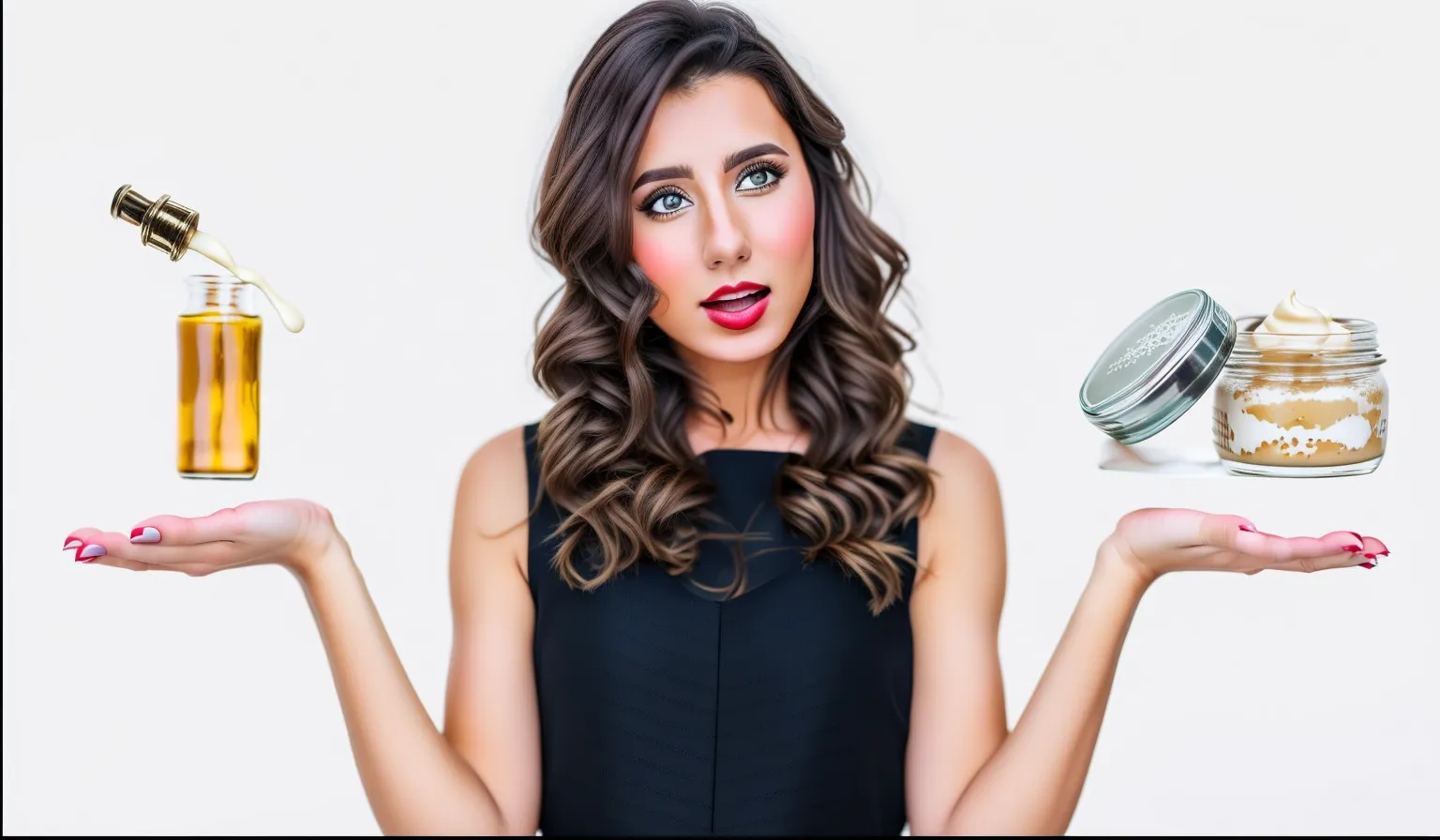
How to Use Argan Oil for Hair?
Argan oil is also beneficial for dry hair. Just massage a few drops of oil onto your scalp and spread it through your hair. It can also be used as a hair oil before shampooing for deep nourishment.
What Products Include Argan Oil?
Argan oil is often found in many skincare and haircare products such as moisturizers, serums, hair masks, and shampoos. It's also a popular ingredient in cosmetics such as foundations and lipsticks due to its hydrating properties.
What to Keep in Mind When Buying Argan Oil?
When you're shopping for argan oil, look for "100% pure Argan oil" or "cold-pressed Argan oil". Keep in mind that pure Argan oil is usually expensive due to its extraction process. Go for products where argan oil is listed towards the top, indicating a higher concentration in the product.
Key Takeaways
- Argan oil, derived from the Moroccan Argan tree, is rich in vitamin E, fatty acids, and antioxidants.
- It's beneficial for all skin types - oily, dry, and sensitive.
- It regulates oil production, soothes skin, and nourishes dry areas.
- Can be used directly on face, body, and hair.
- Argan oil is a common ingredient in skincare, haircare, and cosmetic products.
- Always opt for pure and cold-pressed Argan oil for maximum benefits.
Finally, remember that everyone's skin is unique, and what works for one person might not work for another. Hence, when using Argan oil, monitor your skin's response and adjust the quantity as required. The best quality Argan Oil is available in the Safaa Beauty Shop.
Hashtags:
#ArganOil #SkincareMagic #MoroccanElixir #HealthySkin #BeautyTips #NaturalSkincare #RadiantSkin #SkinBenefits #OrganicBeauty #AntiAging #Moisturize #SensitiveSkin #OilySkin #HairCare #Cosmetics #BeautyRoutine #SafaaBeautyShop
Other Blogposts Our Readers Picked:
Argan Oil for Face & Skin: Unveiling the Benefits and How To Use Argan Oil
Discover the magic of Argan oil for your skin in our blog. Learn why it's a skincare game-changer!
The Ultimate Guide to Hair Care: Tips and Tricks for Healthy Hair
Unlock hair care secrets: understand your hair type, choose the right products, and shield from heat damage. Achieve beautiful, healthy hair with expert advice.
Use Argan Oil Safely - Your Safe Guide to Harnessing Its Power for Skin and Hair
Uncover safe usage of argan oil for skin and hair. Learn precautions, suitable applications, and best practices for this potent beauty elixir.

